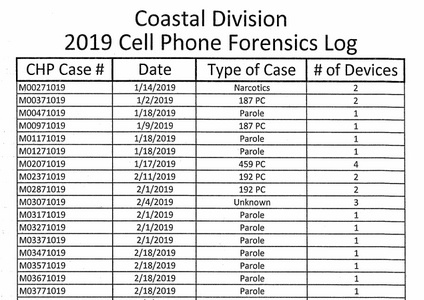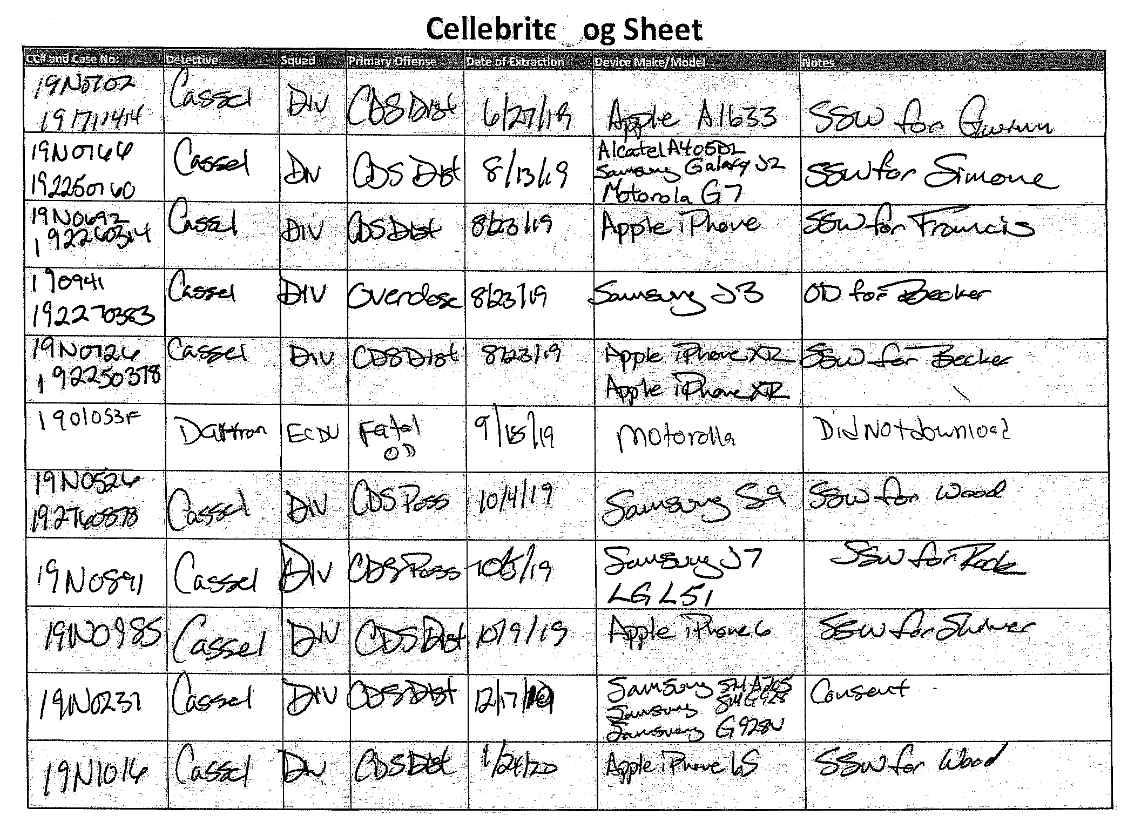1. Our new report exposes how mobile device forensic tools are dangerously expanding police power.
Local law enforcement use these invasive tools to extract and analyze all the data on people& #39;s cellphones, thousands of times each year.
Read: https://www.upturn.org/reports/2020/mass-extraction/">https://www.upturn.org/reports/2...
Local law enforcement use these invasive tools to extract and analyze all the data on people& #39;s cellphones, thousands of times each year.
Read: https://www.upturn.org/reports/2020/mass-extraction/">https://www.upturn.org/reports/2...
2. Newly disclosed public records by @TeamUpturn offer the most comprehensive view to-date into which state and local law enforcement agencies have mobile device forensic tools, how they use them, and what policies (if any) govern their use. https://www.nytimes.com/2020/10/21/technology/iphone-encryption-police.html">https://www.nytimes.com/2020/10/2...
3. A lot is at stake: these tools give law enforcement access to all of someone’s contacts, texts, photos, and location history, which matters not only to the owner of the phone, but to all of their friends and family, who are at risk of increased police contact.
4. Every American is at risk of having the data on their phone extracted and analyzed by law enforcement. We documented at least 2,000 law enforcement agencies that already have access to mobile device forensics tools (MDFTs), in all 50 states and DC.
5. These searches are routine, and given racist policing, it’s highly likely these technologies disparately affect and are used against communities of color.
US law enforcement agencies have extracted hundreds of thousands of phones since 2015, far more than previously known.
US law enforcement agencies have extracted hundreds of thousands of phones since 2015, far more than previously known.
6. We found that law enforcement use phone forensics tools to investigate not only cases involving major harm, but also for graffiti, shoplifting, prostitution, vandalism, car crashes, parole violations, petty theft, public intoxication, and a full range of drug-related offenses.
7. The ability to break encryption and search phones is often called “exceptional access.” But that terminology obscures the on-the-ground reality of everyday, mundane cellphone searches and the rampant adoption of mobile device forensic tools, even by small local agencies.
8. We believe that MDFTs are simply too powerful in the hands of law enforcement and should not be used.
With the goal of eliminating these tools, there are certain steps that can be taken to shrink — and not entrench — their current role in police investigations.
With the goal of eliminating these tools, there are certain steps that can be taken to shrink — and not entrench — their current role in police investigations.
9. Banning consent searches of cellphones is a start. Warrants are far from perfect. But the doctrine underlying “consent” searches is essentially a legal fiction — and law enforcement can do almost anything with data extracted from a cellphone after someone consents.
10. For more on how law enforcement use MDFTs, their precise technical capabilities, and recommendations on steps to curb their use, read our report:
Mass Extraction: The Widespread Power of U.S. Law Enforcement to Search Mobile Phones. https://www.upturn.org/reports/2020/mass-extraction/">https://www.upturn.org/reports/2...
Mass Extraction: The Widespread Power of U.S. Law Enforcement to Search Mobile Phones. https://www.upturn.org/reports/2020/mass-extraction/">https://www.upturn.org/reports/2...
11. We’ve published all of the raw documents we received from our 110+ public records requests on @documentcloud here: https://beta.documentcloud.org/app?q=project%3Adevice-search-200411%20organization%3Aupturn-11238">https://beta.documentcloud.org/app...
12. We have *many* people to thank who have helped us over the course of almost two years to research and write this report. Special shoutout to @JeromeDGreco @LegalAidNYC for providing us with solid guidance throughout, and @STOPSpyingNY and @ShearmanLaw for pro bono counsel.
13/ Many thanks also to @KhaCumberbatch @granick @lynch_jen @MusaJumana @dgrobinson @hannahsassaman @vmsoutherland, former @TeamUpturn summer fellows @fiftyfourwords @_sarika_ram, and @jacknicas. /end

 Read on Twitter
Read on Twitter





